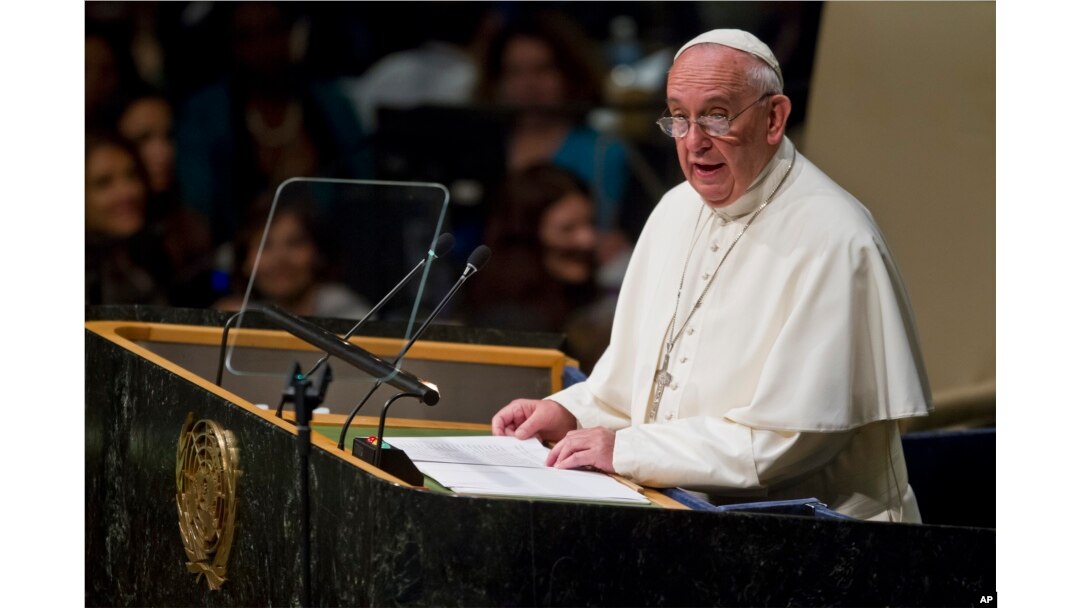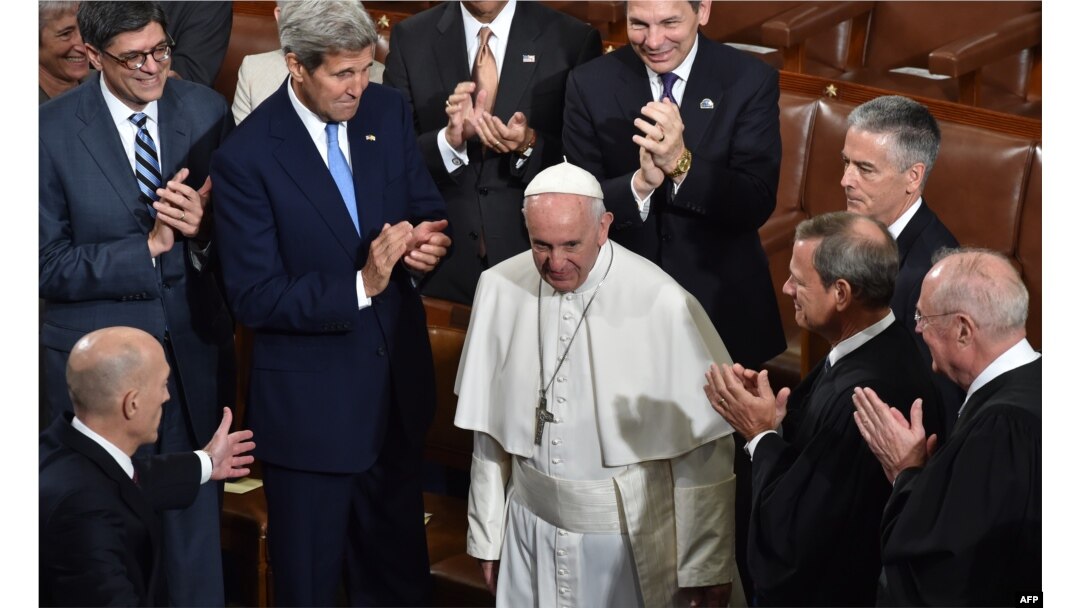It was a potentially inflammatory combination: the pope who once famously slammed the excesses of capitalism as the "dung of the devil" visiting the United States, the lone world superpower and champion of the free market economy.
But during his landmark tour of the U.S. this week, which has included stops in both the nation's political and financial centers, Pope Francis has employed a decidedly less radical economic message than some had expected.
The toned-down language represents an attempt by the pontiff to strike a balance between respecting his American hosts and warning of what the head of the Roman Catholic Church considers the dangers of greedy consumerism, according to some analysts.
"He certainly has been much more vocally anti-capitalist in his other trips to Latin America and elsewhere," says Marian Tupy, senior policy analyst at the libertarian CATO Institute. "But here in the United States he certainly toned it down, especially in Congress. It was like it was a different pope."

Pope Francis addresses the 70th session of the United Nations General Assembly, Sept. 25, 2015 at United Nations headquarters.
Warnings against excess
Francis did not completely shy away from economic issues during his visit.
In an address Friday at the U.N. General Assembly, he criticized the "selfish and boundless thirst for power and material prosperity (that) leads both to the misuse of available natural resources and to the exclusion of the weak and disadvantaged."
A day earlier during a speech to a joint meeting of the U.S. Congress, Francis repeatedly referenced the "common good," saying lawmakers have a responsibility not only to protect individual freedoms, but also to look out for the underprivileged.
"Even in the developed world, the effects of unjust structures and actions are all too apparent. Our efforts must aim at restoring hope, righting wrongs, maintaining commitments, and thus promoting the well-being of individuals, and of peoples. We must move forward together, as one, in a renewed spirit of fraternity and solidarity, cooperating generously for the common good," Francis said.

US Secretary of Stae John Kerry(2nd R),Treasury Secretary Jacob Lew (L)justices of the US Supreme Court and other cabinet members applaud as Pope Francis arrives to address the joint session of Congress on September 24, 2014 in Washington, DC.
Praises for capitalism
But the speech to Congress also contained more conciliatory gestures. At one point, the pope even praised the "spirit of enterprise" and spoke of the necessity of the "creation and distribution of wealth" in helping form a just society. He also noted the progress made in recent decades to raise so many people around the globe "out of extreme poverty."
Interestingly, the most notable aspect of the pope's speech may have been what was left unsaid. One of the most controversial lines of the address, which seemingly questions the role of money in the U.S. political system, appeared in prepared copies of the remarks, but went unspoken during the address: "If politics must truly be at the service of the human person, it follows that it cannot be a slave to the economy and finance."
It is not clear why the pope left the line out. He read the rest of the address verbatim.
Pope Francis supporters gather outside of Madison Square Garden as he celebrates Mass on Sept. 25, 2015 in New York City.
Trying to reach Americans
Francis' speeches have largely steered clear of controversy and have been in line with his usual exhortation to take care of the poor, says Tupy, the CATO analyst, who says he was "pleasantly surprised" at the pope's lack of hostility toward capitalism.
"This doesn't mean he has changed his message. It just means he has decided to emphasize different aspects of his beliefs, I suspect, in order to not offend his hosts and in order to be in a better sync with the American populace at large," says Tupy.
Eric LeCompte, executive director of the religious development organization Jubilee USA, also says the pope's tone reflects a pragmatic approach.
"I think he's very deliberately trying to have a critique of the economic system as well as to show a way forward that Americans can hear. And I think that's why we don't see some of the more prophetic language that the pope is used to expressing," LeCompte says.
Speaker of the House John Boehner, R-Ohio (R) meets Pope Francis in the U.S. Capitol building as the Pope arrives to deliver his speech to a joint meeting of Congress in Washington DC, Sept. 24, 2015.
Reaction
Ahead of the visit, many conservative analysts had chided the pope and expressed concern that he would deliver a harsh critique of the U.S. economic system. But U.S. lawmakers' reaction to his comments were largely positive, both from the Republican and Democratic sides.
House Speaker John Boehner, a Republican and a devout Catholic, wept openly several times during the speech and afterwards said standing next to the pontiff was a "humbling experience." In a written statement, Boehner said: “Let us all go forth and live up to the words.”
Democratic Minority leader Nancy Pelosi, also a Catholic, said Francis "spoke to the better angels of our nature and of the American people. He reminded us of our sacred and inescapable responsibility to those struggling to escape poverty, persecution and war.


